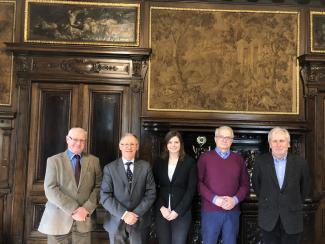The slowly passing decade has brought a completely new perspective on academic teaching. The previously known form of remote teaching using the Internet and the multimedia capabilities of the modern digital world (e-learning) has moved beyond not only the physical structure of the university, but also its organizational framework.
Online courses, previously one of the forms of instruction in the curriculum, have been made available to the non-academic community in the form of open, distance learning courses, commonly known as massive open online courses (MOOC), accessible literally to anyone. Initially, access to MOOC courses was provided individually by the institutions that run them, but soon new MOOC platforms were created that would integrate the offer of courses developed by individual organizations. Examples of such platforms include edX (founded by Harvard University and the Massachusetts Institute of Technology) and Coursera (founded by Stanford University). Both platforms offer a stunning number of courses (approx. 1 800 and 3 500 respectively) and include a staggering number of collaborating institutions - universities, institutes, corporations (approx. 120 and 180 respectively). However, access to some content (courses, certification paths) may be fee-based on both platforms.
The Khan Academy is also worth mentioning - a MOOC platform providing courses at different levels of education, starting with the primary school curriculum. Founded by Salman Khan, the organization operates according to the principles of the sharing economy; access to content is free, the platform is supported by donations, and has received significant support from institutions such as Google Corporation and the Bill and Melinda Gates Foundation. Thanks to professor Lech Mankiewicz from the Center for Theoretical Physics of the Polish Academy of Sciences, the content made available by the Khan Academy is translated into Polish by volunteers working within the Education for the Future Foundation.
The development of remote teaching in Poland has proceeded in similar stages. Initially, the provision of MOOC courses was a stand-alone initiative of individual universities. The Copernicus Centre, an intercollegiate unit of the Jagiellonian University and the Pontifical University of John Paul II, has been an undisputed leader in this regard. It runs the Copernicus College platform, which offers dozens of courses. Whereas on 30 October 2018 a symbolic transition to the next stage took place - the official opening of the nationwide MOOC platform, then called the Polish MOOC platform, later renamed Navoica. The project was conceived by the Ministry of Science and Higher Education, implemented by the Young Science Foundation, and the Project Council includes the rector of Lodz University of Technology, professor Sławomir Wiak.


